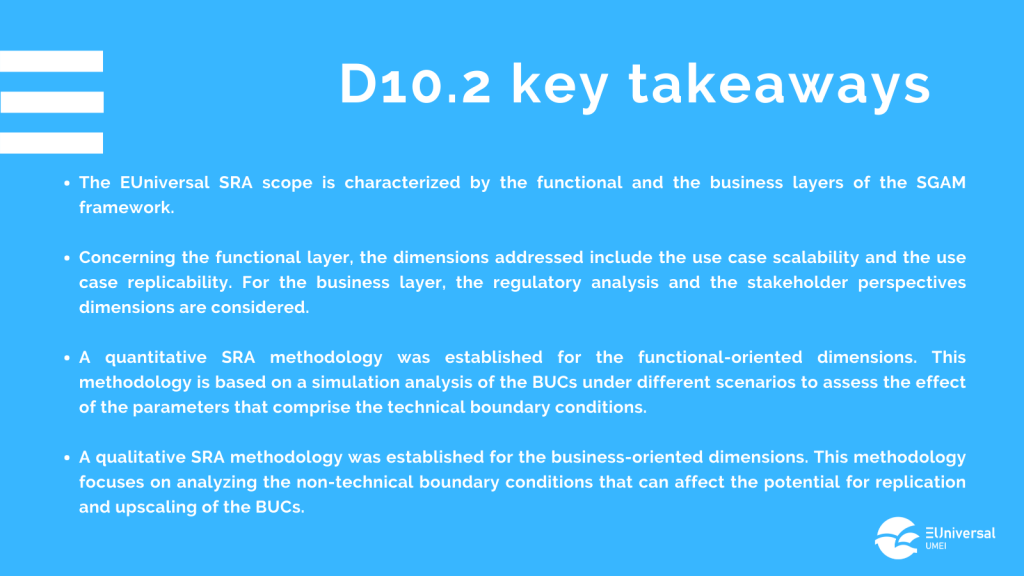The EUniversal project comprises three different demonstrators located in Germany, Poland, and Portugal, in which ten Business Use Cases (BUCs) will be tested on real distribution networks at different locations.
The majority of the BUCs implement local flexibility markets for the procurement of flexibility by Distribution System Operators (DSOs) in the short-term and long-term timelines. In addition, they are concentrated on the delivery of congestion management or voltage control services through active and/or reactive power.
The results obtained from the demonstrators will provide helpful information on the impact of the BUC solutions.
However, these results will be subject to the boundary conditions of each location, such as technical, regulatory, environmental, and social contexts.
Therefore, it is necessary to perform a Scalability and Replicability Analysis (SRA) to understand the effects of implementing similar solutions under different boundary conditions that may affect the outcomes expected from the EUniversal project.
The scalability part of the analysis aims to determine the ability of a process, system, or network to increase in size or range to meet a growth in demand correctly.
On the other hand, the replicability part of the analysis aims to determine how the modification of the boundary conditions affects the conclusions extracted from the use case with the objective of applying it in other regions, whether intranational or international.
In this context, the main objective of this deliverable is to describe the methodology and scenarios to carry out the SRA of the EUniversal project focusing on the ten BUCs defined in the deliverable D2.2 of the project.
The methodology presented in this deliverable will be applied in Deliverable D10.4 “Scalability and Replicability analysis of the EUniversal solutions”.
Since the SRA can be done for different dimensions, the H2020 BRIDGE initiative developed some guidelines or methodology to support European projects to perform high-quality SRA studies, regardless of the particularities of each project, by providing common and consistent grounds.
The EUniversal SRA is organized around the functional layer and the business layer of the SGAM framework according to the project’s Description of the Action (DoA).

This deliverable was jointly produced by COMILLAS and VLERICK.








